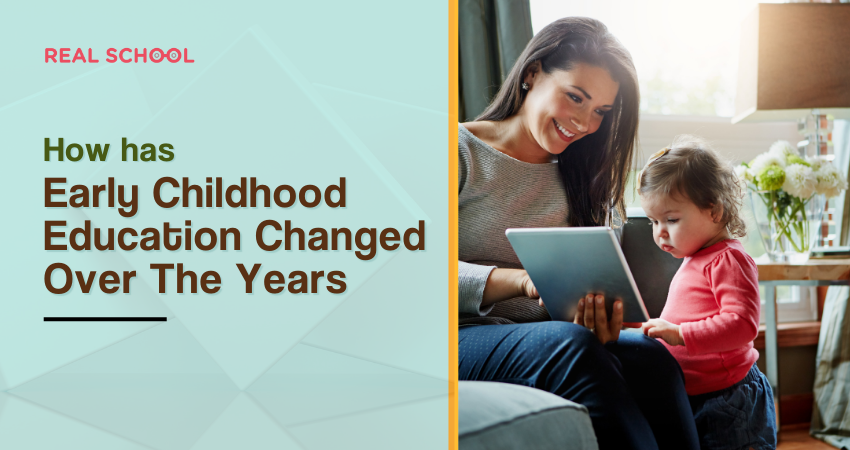Early childhood education has come a long way over the years, evolving to meet the changing needs of children and society. What began as informal home-based learning has transformed into a structured and comprehensive approach to preparing children for their educational journey. In this article, we will explore the fascinating journey of how early childhood education has changed and adapted throughout history.
The Early Beginnings
Early childhood education has existed in various forms for centuries, but it wasn’t always recognized as a formal system of education. In ancient civilizations, children learned from their parents, observing and imitating their daily activities and rituals.
The Emergence of Kindergartens
Friedrich Fröbel’s Vision
One of the significant milestones in the history of early childhood education was the establishment of kindergartens by Friedrich Fröbel in the early 19th century. Fröbel believed in the importance of play-based learning and created a structured environment where young children could learn through guided activities and social interaction.
The Montessori Method
Maria Montessori’s innovative educational approach, developed in the early 20th century, emphasized the importance of a child’s independence and self-directed learning. Montessori classrooms are designed to foster exploration and hands-on experiences.
The Influence of Research
The Influence of Child Development Theories
The field of early childhood education has been significantly shaped by child development theories, such as those of Jean Piaget and Erik Erikson. These theories have provided valuable insights into how children learn and develop, leading to more effective teaching methods.
Inclusion and Diversity
Inclusive Education
In recent decades, there has been a strong push for inclusive early childhood education, ensuring that children with diverse needs and abilities receive quality education alongside their peers. This shift toward inclusivity has created more opportunities for all children to thrive.
Technology and Online Learning
The Digital Age
With the advent of technology, early childhood education has incorporated digital tools and online resources to enhance learning experiences. Educational apps, interactive websites, and virtual classrooms have become integral parts of early education.
Also Read: Why Montessori Schools Are Ideal for Early Childhood Education?
Conclusion
Early childhood education has undergone remarkable transformations over the years, from informal family-based learning to structured kindergartens and inclusive classrooms. The integration of research-backed teaching methods, emphasis on inclusivity, and the use of technology have all contributed to shaping the field into what it is today—a dynamic and essential part of a child’s development. Know more – The Real School
FAQs
1. When did early childhood education first emerge as a formal system?
Ans: Early childhood education gained recognition as a formal system with the establishment of kindergartens by Friedrich Fröbel in the early 19th century.
2. What is the Montessori Method, and how has it influenced early childhood education?
Ans: The Montessori Method, developed by Maria Montessori, emphasizes child independence and self-directed learning. It has had a significant impact on early childhood education by promoting hands-on, exploratory learning.
3. How has technology changed early childhood education?
Ans: Technology has introduced digital tools and online resources, enhancing early learning experiences. Educational apps, interactive websites, and virtual classrooms have become essential components of modern early childhood education.
4. What is inclusive early childhood education?
Ans: Inclusive early childhood education ensures that children with diverse needs and abilities receive quality education alongside their peers. It promotes diversity, equity, and access to education for all children.
5. How can parents stay involved in their child’s early education in today’s digital age?
Ans: Parents can stay involved by engaging in their child’s learning, monitoring screen time, and choosing high-quality educational apps and resources that complement their child’s development.







